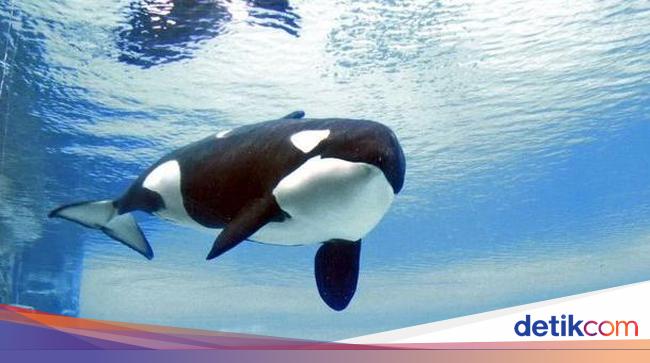Canada – Kiska, “the loneliest killer whale in the world”, died in captivity in Canada. The marine mammal died on March 9, 2023, around the age of 47. For the past four decades, Kiska has lived at Ontario Marineland amusement park since 1979 after being caught in Icelandic waters.
Quote from detikEdu, Kiska was captured with another orca, Keiko, who had also been living in Marineland for several years. Keiko rose to fame for playing the main character in the movie Free Willy in 1993. But about 20 years ago Keiko passed away.
Kiska’s breeding ground sparks controversy
According to IFL Science, the practice of keeping killer whales in captivity has sparked much controversy, arguably culminating in the 2012 release of the documentary Blackfish, which focused on the plight of Tilikum.
Tilikum, one of several orcas kept at SeaWorld Orlando, was sold to the park in 1991, about eight years after the initial captivity.
It was documentary that sparked controversy, SeaWorld later removed the killer whale show.
In 2019, Canada passed a law prohibiting the keeping or breeding of whales and dolphins in captivity. However, there are exceptions for marine mammals that are already held in captivity like the case of Kiska.
Regarding Kiska’s death, Reuters, a spokesman for local authorities confirmed that a necropsy had been performed on Kiska’s body but did not comment on the specific cause of death.
Although the animal rights group Whale Sanctuary Project reported that Kiska died of a bacterial infection. Based on previous reports that killer whales in captivity are at risk of dying from opportunistic infections.
Orcas are social animals
A Whale Sanctuary project previously dubbed Kiska “the loneliest whale in the world”. This happened because her life was damaged by a tragedy because at Marineland she gave birth to five calves and all of them died at a young age.
Since 2011, he no longer has any friends. We know from drone footage that he swam alone.
Orcas are known as social animals, which has encouraged animal rights activists for years to call for Kiska and other captive whales to be released into appropriate retirement centers so they can live more freely.
Cases such as Tokitae, an aging whale who until recently appeared in a show at the Miami Seaquarium, explained the plight of marine mammals stranded in their native waters.
The fear of spreading disease to wild populations and the potential stress of being placed in a new environment must be weighed against ethical and moral considerations.
For Kiska, one fact animal rights activists complain about is that her potential retirement from captivity was never agreed upon.
Camille Labchuk, executive director of CBC’s Animal Justice, said learning about Kiska’s pre-death condition was heartbreaking, having never had the chance to be transferred into the wild. Kiska didn’t have the freedom she should have.
This article was published on detikEdu with the title The story of Kiska, the loneliest orca in the world, who died aged 47
(Yum yum)

“Unapologetic travel lover. Friendly web nerd. Typical creator. Lifelong bacon fanatic. Devoted food enthusiast. Wannabe tv maven.”

/data/photo/2021/03/31/60644935ea39e.jpg)
/data/photo/2020/09/23/5f6adf26cfa4c.jpg)



